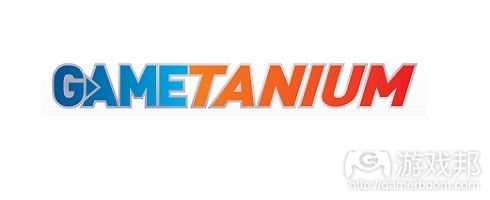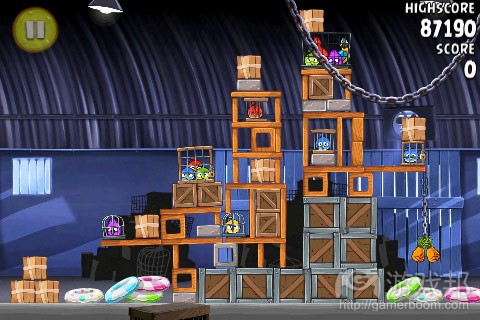综观Android游戏市场及其发展前景
游戏邦注:本文作者为Andrew Webster,文章主要阐述Android游戏开发市场的相关情况。
如今搭载Android操作系统的手机数量比iPhone多得多。据悉,Android设备平均每天激活40万台。但iOS对开发商来说依旧是个更加有利可图、更受欢迎的平台。原因是:Android无需花钱买应用;众多设备和应用商店使得Android市场呈分散状态。
尽管存在众多问题,但Android依旧是个庞大的市场,并且这个市场将会持续发展,令人难以忽视。
比较苹果和Android
即便如此,我们鲜少发现游戏开发商专门针对Android平台开发游戏。而是更多看到开发商将iOS或其他平台的成功作品转移至Android平台,期待能够同样取得成功。畅销Android游戏是我们所熟悉的《愤怒的小鸟》和《水果忍者》。
Infinite Dreams就是采用这个策略,它首先在iOS平台推出《Can Knockdown》,然后将《Can Knockdown 2》投放Android平台。首款游戏采用免费下载模式,但续集定价0.99美元。虽然相比原始iPhone版游戏而言,游戏销量并不突出,但该工作室仍然认为Android市场是个重要市场。
Infinite Dreams副总裁Marek Wyszynski表示,“比较iOS和Android两个平台的销售情况,我们会发现Android明显略逊一筹。Android设备销量可观,但iOS用户更倾向购买应用。我觉得目前这个情况会随着时间发生改变,Android早晚会迎头赶上。这就是为什么我们选择支持Android,将产品瞄准这个平台。”
事实上,Infinite Dreams发展迅速,多平台开发已经成为其发展策略之一。Wyszynski表示,通过使用Unity 3D,我们无疑能够同时针对两个手机平台制作游戏(游戏邦注:即将问世的《K-Rally 3D》就是同时投放两个平台)。但他表示,Android设备的分散性确实带来某些问题。
他表示,“我们希望尽快推出多平台产品。正确的设计决策和使用Unity 3D使得我们能够同时瞄准两个平台开发游戏。”
这似乎是开发商们的共识。虽然探索如何通过Android实现游戏创收目前来看尚有难度,但其庞大的市场规模还是颇引人注目。
这就是为什么Get Set Games决定将其热门免费游戏《Mega Jump》移至该平台。这个工作室只有5个成员,因此移植工作是外包给其他公司(游戏邦注:Get Set Games是通过OpenFeint的社交游戏服务找到这家公司的)。对Get Set Games而言,公司做此决定并非仅因为这个市场具有创收潜力,同时也是希望产品能够走多元化发展路线。
公司联合创始人Matt Coombe表示,“从商业角度看,这显然是个巨大的市场,其发展速度十分快,超越苹果。所以从多元化角度看,我们自然希望能够入驻多个平台。入驻多个平台意味着如果出现类似苹果问题(指的是《Mega Jump》第13次iOS更新问题,这迫使公司不得不把作品暂时卸下App Store),营收出现下滑,我们还有其他营收途径。”
去除消费阻力
Android用户拒绝应用内置付费使得Tapjoy之类的服务相比其他平台显得更加重要。越来越多手机游戏采用免费模式,没有内置付费功能使得开拓新创收渠道变得必不可少。
Tapjoy同时向iOS和Android平台开放服务,其服务网络覆盖9000款游戏以及2亿用户。除为用户提供免费虚拟货币、为游戏提供广告之外,服务还还为开发商提供虚拟货币托管和分析等服务。
Tapjoy的Matt McAllister表示,这些服务对Android来说特别重要。虽然用户依然能够访问内容,但将排除消费的内在阻力。他表示,这能够带来双赢结果,用户能够免费获得自己所需,而又不伤害开发者创收能力。
McAllister表示,“我们发现Android用户习惯免费获得服务,这正是谷歌的特点所在。显然相比Android用户而言,更多iOS用户倾向购买付费应用,但随着开发商开始转向免费应用,游戏如今出现转变,两个平台的游戏逐步转向免费商业模式。”
Tapjoy目前正在探索Amazon问题的解决方案。同时公司也开始解决其在iOS App Store遇到的阻力,这是因为苹果决定限制其所提供的服务类型。但Tapjoy仍旧计划推出新服务,以便平台能够带给开发商更多营收机会。
Android平台存在不足
Android的开放性意味着该平台具备封闭操作系统iOS所没有的服务。
例如,置身PC游戏行业多年后,Exent最近宣传针对Android游戏推出Netflix式推广平台Gametanium。Gametanium用户按月付费,费用通常绑定在手机账单上,用户能够无限制畅游众多游戏之中。
这是个采用特殊付费方式的特殊服务,开发商的营收是基于用户在游戏中所消耗的时间。平台积累所有游戏体验时间,增加开发商报酬(游戏邦注:因此游戏体验时间越长,开发商所获报酬也就越多)。
从理论角度看,该系统奖励推出优质游戏的开发商,因为用户多半会重复体验他们认为富有趣味性的游戏。Exent内容和程序主管Rick Marazzani表示,这个系统解决Android市场的两个最大问题:营收和曝光度。
他表示,“我们发现Android市场在游戏推广和创收方面存有不足。创收和内容收费不是谷歌强项。他们擅长的是广告和搜索,根据点击率创收。”
“但就像增加店面曝光度,开展营销和促销活动,以及我们多年来致力PC平台为运营商伙伴所做的一切,我们独自寻找解决方案,增加应用曝光度,宣传应用,推广应用,然后通过订阅实现创收,这些费用或直接支付,或通过整合至手机账单。”
Gametanium希望凭借质量实现差异化。Marazzani把目前的Android游戏形容为“99.9%的垃圾”。Exent因此在选择平台游戏时十分慎重。平台目前拥有100款左右游戏,“随着优质游戏的涌现,平台游戏数量将会日益增多”。
Exent这个心态和HyperBees(游戏邦注:HyperBees专营Android手机游戏发行)类似。HyperBees成立于2009年底,驻扎于伦敦,2010年2月发行其首款游戏,随后陆续推出系列颇受追捧的作品。
HyperBees所发行游戏的总下载量超过400万次,《SpeedX 3D》和《Impossible Level Game》双双问鼎Android前10大付费游戏,位居第5。为了确保游戏的高质量,HyperBees很早就实行在游戏创造阶段就同开发商展开合作。
公司联合创始人Tom Mleko表示,“我们希望尽早参与开发阶段,从游戏理念方面开始合作,不论用户体验还是营收。在某些情况下,例如在《ShakyTower》(即将问世的作品),我们同开发商进行20多次互动。也许有些人会认为同HyperBees合作很艰巨。但有些方式我们绝不敢苟同,比如过早发行游戏。但除此之外,我认为我们还是通情达理的合作伙伴。如果我们的观点站不住脚,我们会毫不犹豫地放弃。”
和Exent一样,Hyperbees希望这种高质量诉求能够缓解新应用曝光度问题。通过发行具备一定质量的游戏,用户逐渐会认可HyperBees游戏的趣味性。
但瞄准Android这样拥挤的平台,仅凭优质游戏这个筹码并不足够。而这也正是发行商的作用所在。
Mleko表示,“实际情况是市场拥有如此多的游戏,如果你希望创收,应用单凭质量高并不够,还需要进行有效营销。而这如果没有相关创收经验和知识是无法办到的。”
“HyperBees品牌也有发挥作用:玩家知道它,博客主和社区知道它。虽然我们不是Rovio,但我觉得我们的表现还是很不错的。”
虽然围绕这个平台的问题很多,但有两个因素促使Android成为极富吸引力的平台:开放性和日益扩大的规模。这就是为什么Get Set和Infinite Dreams之类的公司会把游戏移植至Android平台,这就是为什么Tapjoy、HyperBees和Exent之类的公司会探索新途创造营收,推广应用。
作为免费游戏,《Mega Jump》主要依靠内置付费维持营收,Get Set深知这是Android的问题所在。Android应用虚拟道具购买步骤繁琐,过程缓慢,这些因素使得用户通常不会进行购买行为(游戏邦注:这意味着营收的减少)。Coombe将此形容为“Android阻力领域”。
只有工作室采用Tapjoy,Android版游戏从营收角度看才具有可行性。Tapjoy是个付费工具,玩家可以通过安装应用,免费获得虚拟货币。
Coombe表示,“我们肯定不会仅仅依靠内置付费方式创收。”
但这也带来相应问题。用户能够在多个商店购买Android游戏,各个商店均有不同规则,《Mega Jump》最近才刚刚被Amazon新推出商店拒绝,因为游戏植入Tapjoy软件。Tapjoy会把用户引向Amazon商店以外的市场,这违反了Amazon服务条款。
需要应对众多不同应用商店使Android成为相比其他竞争对手而言较为复杂的平台。
Coombe表示,“这并非一个庞大的统一市场,而是众多小市场的结合体,无法给我们带来丰厚营收。”
但就像Infinite Dreams,入驻Android平台最初遇到的困难并没有打消Get Set对这个平台存在的信心:这个平台未来将会具有重要地位。因此该工作室今年初聘请公司第5名员工,新成员除了负责团队社交策略之外,还要管理Android业务,确保其他成员成功专攻iOS游戏开发及其他项目。
所以尽管最初营收并不可观,但Get Set还是认为针对Android的早期探索极其重要。
Coombe表示,“亲身体验才能获得更深见解,参与其中十分重要。我们很高兴能够亲自进行试验,知道自己的未来发展方向。”
亚马逊商店
但也正是这些因素促使传统游戏甚至是手机游戏以外的大公司参与其中,比如亚马逊(游戏邦注:亚马逊是北美最大零售商)。亚马逊今年3月推出自己的Android应用商店,该商店设置独特功能,比如浏览器“试验”功能,用户可以先在自己的电脑试验应用,然后再购买。
虽然IGDA对亚马逊的服务条款颇为担忧,特别是其定价方式,但这个手机市场还是博得某些游戏行业大公司的青睐。
这个应用商店在其初期“应用免费日”推出了新游戏《Angry Birds Rio》,而PopCap最近也宣布公司头两款Android游戏《Android》和《植物大战僵尸》将首先入驻亚马逊商店,该商店将拥有一定期限的专属权,随后才会出现于谷歌市场中。
这似乎是个奇怪的组合——大型零售商和手机应用商店,但事实上亚马逊和Android的配合非常默契。
亚马逊的Aaron Rubenson表示,“我们花了几年时间开发创新功能,帮助消费者从我们的广泛选择中发现相关产品。我们很高兴能把那些功能落实到应用细分市场。”
“应用商店是亚马逊符合常理的发展步骤。我们很看好手机消费市场,我们整个公司都在努力为手机设备开发优质产品和服务。”
虽然亚马逊商店相比其他Android市场应用数量少很多,但其庞大用户基础、营销策略和推广技巧(游戏邦注:如高效个性化推荐功能)使得商店成为发行作品的胜地。这也是玩家能够同时购买新手机和配套应用的唯一商店。
未来发展
总的来说,Android目前仍然是个颇具趣味性的平台。虽然平台已存在3年,但从很多方面看它依旧在不断成熟当中。Android是个分散的市场(游戏邦注:不论是从购买应用的商店数量,还是从承载的硬件设备来看)。这使得实际开发过程、营销和销售环节复杂化。
虽然文章谈及系列解决方案,但其实还有更多应对策略,不论是已发行的,还是那些即将问世的,例如Ngmoco的Mobage服务,Mobage服务针对Android平台,能够将各种应用绑定作为玩家互动“渠道”。
但这并没有阻止开发商涌入这个平台的步伐。虽然平台尚有不足,Android游戏创收困难重重,我们还是认为随着平台持续发展和扩展,其未来拥有无限潜力。
Mleko表示,“4-6个月之前,Android还在努力追赶iOS平台,但现在我确信Android未来定会成为更受追捧的平台。”(本文为游戏邦/gamerboom.com编译,如需转载请联系:游戏邦)
Fighting The Friction: An Overview Of The Android Market For Game Developers
by Andrew Webster
[Unlike the iOS platform, whose App Store is the only legitimate way to get commercially-released games into the hands of players, Google's Android platform allows for many different options -- and in this article, Gamasutra explores several of them to find out just what developers should know before selecting one.]
There are now more Android-enabled phones out there than iPhones. 400,000 new Android devices are activated each day. Yet iOS remains both a more lucrative and more popular market for game developers. We’ve all heard the reasons: Android users don’t spend money on apps; the multitude of different devices and app stores makes for a fragmented marketplace.
But for all its problems, Android is still a huge market, and one that will likely only continue to grow… which makes it hard to ignore.
Comparing Apples and Androids
Even so, it’s rare to find game developers creating titles exclusively for the platform. It’s much more common to see developers that have had success on iOS or other platforms attempt to replicate that with on Android. The top-selling Android games tend to be familiar faces like Angry Birds or Fruit Ninja.
Infinite Dreams went down this route when it released ports of its hit iOS games Can Knockdown and Can Knockdown 2 on Android. Though the first game in the series is free to download, the sequel currently sells for $0.99. And while sales haven’t been as strong for the port when compared to the original iPhone version, the studio still believes that the Android market is an important one.
“When you compare iOS sales to Android sales it’s obvious that Android still has a long way to go,” Infinite Dreams vice president Marek Wyszynski says. “Android devices sell in big numbers, but somehow iOS owners are more likely to be involved in purchasing applications. I believe this will change over time, and Android will catch up. That’s why we want to support Android and release all of our products for this platform.”
In fact, Infinite is going so far as to make multiplatform development a large part of its strategy. By using Unity 3D, Wyszynski says, it’s relatively easy to create a game for both mobile platforms with a minimum of fuss. However, he admits, the large number of different Android-enabled devices out there does lead to some problems. That being said, upcoming titles like K-Rally 3D are being developed simultaneously for both platforms.
“We try to think about our games as multiplatform products as early as possible,” he says. “Good design decisions plus the technology we are using [Unity 3D] makes it not very difficult to develop for both platforms at the same time.”
And that seems to be a common belief amongst developers. While figuring out how to monetize games on Android is currently very difficult, the sheer size of the market makes it very attractive in spite of this.
That’s why Get Set Games decided to port its popular freemium hit Mega Jump to the platform. Since the studio has just five employees, the port was handled by an outside company, found through the OpenFeint social gaming service. For Get Set, it wasn’t just capturing a piece of what could potentially be a lucrative market, but also diversifying its portfolio that prompted the decision to port Mega Jump.
“From a business point of view, it’s obvious that it’s a massive market, and it’s growing fast, growing faster than Apple,” explains co-founder Matt Coombe. “So it made a lot of sense that we would want to be on more than one platform from a diversity point of view. Being on more than one platform means that if anything like this happens with Apple [referring to an issue with Mega Jump's thirteenth iOS update, which forced the studio to temporarily pull the game from the App Store] and your revenue goes down, then you have other streams of revenue.”
Fighting the Friction
This issue with Android users’ resistance to in-app purchasing makes services like Tapjoy even more important than on other platforms. An increasing number of mobile games are being released for free, and without in-app purchases new ways of making these games profitable are needed.
Currently, Tapjoy is available on both iOS and Android, and has over 9,000 games across its network and 200 million users. In addition to providing free virtual currency for users and advertising for games, the service also provides things like virtual currency hosting and analytics for developers.
According to Tapjoy’s Matt McAllister, these services are especially important on Android. Users can still access the content, but without the friction inherent in actually making a purchase. This, he says, creates a win/win scenario in which the users get what they want for free without damaging the developer’s ability to still earn money.
“We’ve seen that Android users are used to seeing great services for free, which is characteristic of what folks expect from Google,” McAllister says. “We’ve definitely seen more users buying paid applications on iOS vs. Android, but with all the movement to freemium apps, the game is changing and we’re excited to see it unfold as more and more titles take on a freemium business model on both platforms.”
Tapjoy is currently working on a solution to the Amazon issue. It also has run into friction of its own on the iOS App Store, thanks to Apple deciding to limit the type of offers it provides. However, the company also plans to roll out additional services to make its platform more attractive to developers.
Diamonds in the Rough
Android’s open nature also means that services are being created that really couldn’t exist on a more closed system like iOS.
For example, after years of working in the PC gaming space, Exent recently launched a Netflix-style distribution platform for Android games called Gametanium. With it users pay a monthly fee, often bundled as part of their monthly carrier bill, and have unlimited access to a library of games.
It’s a unique service that also has a unique payment structure, which actually rewards developers for how much time users spend with their games. Each minute of gameplay is logged and goes towards increasing the developer’s share of the royalties. So the more minutes your game gets played, the more money you’ll end up earning.
In theory, this system rewards developers who release better games, as users are more likely to replay games they enjoy. According Exent’s director of content and programming Rick Marazzani, this system solves the two biggest issues with the Android market: monetization and discovery.
“We saw a lot of problems in the Android marketplace in merchandising, monetizing games,” he explains. “Google… that’s not their forte, monetizing and charging for content. They’re pretty good at ads and getting the right answer in front of you, and monetizing it via eyeballs.
“But as far running a storefront with discovery and marketing and promotions, all of the things that we’ve done for years [on PC], for our operator partners, we brought all that to bear for our own solution on discovering apps, for promoting apps, merchandising them, and then monetizing them via a subscription, which is either paid for directly by the user or integrated into their phone bill.”
Gametanium also hopes to differentiate itself through quality. Marazzani describes the current crop of Android games as being “99.9 percent… complete garbage.” And to that end Exent is being very selective with deciding which games end up on the service. It soft-launched with around 100 games and will “grow as quickly as good games come out.”
It’s a mindset similar to that of HyperBees, an Android-centric mobile games publisher. Launched in late 2009, the London-based publisher helped release its first game in February 2010 and since then has gone on to publish a number of high selling games.
HyperBees published games have seen more than four million downloads in total, and titles like SpeedX 3D and Impossible Level Game both managed to crack the top 10 paid games chart on the Android Market, reaching as high as the number five spot. In order to ensure that the games it publishes are of the highest quality, HyperBees actually starts working with developers very early on in the creation process.
“When it comes to the development process, we prefer to be involved as early as possible, starting from the game’s concept, through UX to monetization,” says co-founder Tom Mleko. “In some cases, for example with ShakyTower [an upcoming title], we go through more than 20 iterations. I suppose working with HyperBees might be tough for some. There are some approaches we will never agree to, like releasing games prematurely. But other than that I believe we are reasonable people. We do not have a problem with killing our ideas if they don’t hold water.”
Like Exent, Hyperbees is hoping that this quality-centric focus will help alleviate the new app discovery issue. By releasing only games of a certain level of quality, users will then begin to associate the HyperBees name with games that they enjoy.
But on a platform as crowded as Android, simply being a good game isn’t always enough. And that’s where the publisher comes into the picture.
“The reality is that with so many games on the market if you want to earn money, your app needs to be not only very good but also well marketed,” explains Mleko. “That is not so easily done without at least some experience or knowledge about how to monetize.
“The HyperBees brand also plays a role: players know it, bloggers and the community know it. Okay, we’re not Rovio, but I think we’re doing fine.”
While there are plenty of concerns surrounding the platform, there are also two factors that make Android an extremely attractive space: its openness and its ever increasing size. It’s why developers like Get Set and Infinite Dreams have ported games to Android and its why companies like Tapjoy, HyperBees, and Exent are looking at new ways to monetize and promote apps.
As a free-to-play game, Mega Jump relies on in-app purchases to remain profitable, and as Get Set learned this can be an issue on Android. The multi-step, and frequently slow, process for purchasing virtual items in an app makes users less likely to actually go through with a purchase, which means much less revenue. Coombe describes it as “a real friction area on Android.”
The Android version of the game only truly became financially viable once the studio implemented Tapjoy, an alternate payment service that allows users to earn virtual currency for free by installing apps.
“We certainly wouldn’t have made our money back the way things were going with just in-app purchasing,” says Coombe.
However, this too proved to be somewhat of an issue. The multiple app stores where users can buy Android games each have different rules, and Mega Jump was actually rejected from Amazon’s newly launched store because of the inclusion of Tapjoy. Tapjoy directs users to a marketplace outside of Amazon’s store, which, as it turns out, is a violation of Amazon’s terms of service.
Having to deal with so many different app stores makes Android a much more complicated option compared to its competition.
“It doesn’t work like a huge single market,” says Coombe. “It works like a ton of little markets. It hasn’t turned into a huge part of our revenue.”
But, like Infinite Dreams, the initial difficulties with Android haven’t dampened Get Set’s belief that the platform will eventually become very important. To that end, the studio hired its fifth employee earlier this year who, in addition to managing the team’s social strategy, also oversees the Android portion of the business, allowing the rest of the team to focus on the ongoing development of the iOS version, as well as other upcoming projects.
So while the monetary benefits may not have been all that great initially, Get Set still views its early experiences with Android as being very important.
“Getting our feet wet and understanding it better, being involved in it is really important,” says Coombe. “And we’re really happy to have done that and know what’s going on.”
Enter Amazon
But these factors are also attracting larger names from outside of the traditional gaming, or even mobile, space. Names like Amazon. The largest online retailer in North America launched its own Android app store back in March, complete with unique aspects like an in-browser “test drive” feature that allows users to play around with an app on their computer before making a purchase.
Though the IGDA has expressed concerns over Amazon’s terms of service, specifically with regards to pricing, the mobile marketplace has managed to attract some big names in the gaming space.
The app store launched with the at-the-time brand new Angry Birds Rio as the initial “free app of the day,” and more recently PopCap announced that its first two Android games, Chuzzle and Plants vs Zombies, would be timed exclusives, launching first on Amazon’s store before eventually being released on Google’s marketplace.
It may seem like an odd fit — a giant retailer and a mobile app store — but Amazon and Android actually seem to work together surprisingly well.
“We’ve spent years developing innovative features that help customers find and discover relevant products from our vast selection, and we’re excited to be able to apply those capabilities to the apps market segment,” says Amazon’s Aaron Rubenson.
“An app store is a logical next step for Amazon. We take mobile shopping very seriously and across the company, we are working hard to make great products and services available on mobile devices.”
While Amazon’s app store features a significantly smaller number of apps compared to the Android Market, the company’s huge customer based and proven marketing and merchandising techniques — such as very effective personalized recommendation features — that make it such an attractive place to release a game. It’s also possibly the only place where you can both buy a new phone and the apps to go along with it.
Rubenson says the company’s goal is to “[make] it as simple as possible for customers to purchase developers’ apps both online and on their mobile devices.”
Looking ahead
Overall, Android is an incredibly interesting place right now. Though the platform has been around for three years, in many ways it’s still maturing. It’s a fragmented market, both in terms of the number of places you can buy apps, as well as the wide range of hardware available to run them on. This complicates everything from the actual development process to marketing and selling a game.
Though this article looks at a number of solutions, there are many more — both those that are already launched, and upcoming ones, such as Ngmoco’s Mobage service, which on Android will bundle apps together as an interactive “channel” for players.
But that hasn’t stopped developers from flocking to the platform. Because for all of its issues and the difficulties in actually earning money with Android games, there’s also a sense that as the platform continues to grow and expand things will only get better.
“Until four to six months ago, Android was playing catch-up with iOS but now I am certain that it will be the more attractive platform eventually,” says Mleko.(Source:Gamasutra)












































 闽公网安备35020302001549号
闽公网安备35020302001549号